Donald Trump pleads not guilty to federal charges that he illegally kept classified documents at Florida estate
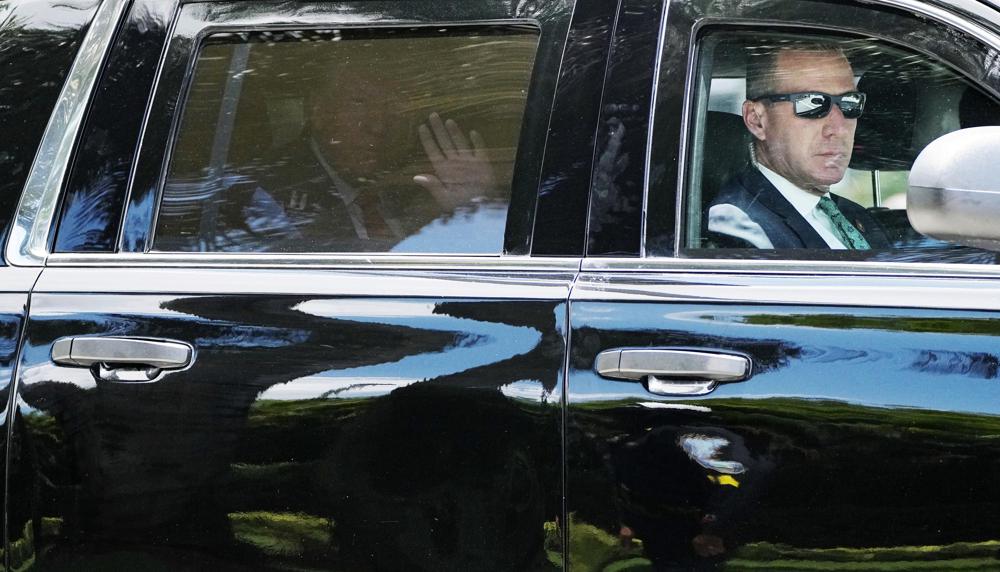
Donald Trump became the first former president to face a judge on federal charges as he pleaded not guilty in a Miami courtroom Tuesday to dozens of felony counts that he hoarded classified documents and refused government demands to give them back. The history-making arraignment, centering on charges that Trump mishandled government secrets that, as commander-in-chief, he was entrusted to protect, kickstarts a legal process that will unfold at the height of the 2024 presidential campaign and carry profound consequences not only for his political future but also for his own personal liberty. Trump approached his arraignment with characteristic bravado, posting social media broadsides against the prosecution from inside his motorcade and insisting as he has through years of legal woes that he has done nothing wrong and was being persecuted for political purposes. But he sat scowling inside the courtroom with his arms crossed as a lawyer entered a not-guilty plea on his behalf in a brief arraignment that ended without him having to surrender his passport or otherwise restrict his travel. But the gravity of the moment was unmistakable as he answered to 37 felony counts that accuse him of willfully retaining classified records that prosecutors say could have jeopardized national security if exposed, and the trying to hide them from investigators who demanded them back. The case is loaded with political implications for the 76-year-old Trump, who currently holds the dominant spot in the early days of the 2024 Republican presidential primary. Beyond that, it carries the prospect of a years-long prison sentence. Even for a defendant whose post-presidential life has been dominated by investigations, the documents probe has stood out for both the apparent volume of evidence amassed by prosecutors and the severity of the allegations. It’s also a watershed moment for a Justice Department that until last week had never before brought charges against a former president. Attorney General Merrick Garland, an appointee of President Joe Biden, sought to insulate the department from political attacks by handing ownership of the case to a special counsel, Jack Smith, who on Friday declared, “We have one set of laws in this country, and they apply to everyone.” The arraignment, though largely procedural in nature, is the latest in an unprecedented public reckoning this year for Trump, who faces charges in New York arising from hush money payments during his 2016 presidential campaign as well as ongoing investigations in Washington and Atlanta into efforts to undo the results of the 2020 race. He’s sought to project confidence in the face of unmistakable legal peril, attacking Smith as “a Trump hater,” pledging to remain in the race and scheduling a speech and fundraiser for Tuesday night at his Bedminster, New Jersey, club. “They’re using this because they can’t win the election fairly and squarely,” Trump said Monday in an interview with Americano Media. The court appearance is also unfolding against the backdrop of potential protests. Some high-profile backers have used barbed rhetoric to voice support. Trump himself has encouraged supporters to join a planned protest Tuesday at the courthouse. Some Trump supporters headed to Miami by bus from other parts of Florida, raising concerns for law enforcement officials preparing for possible unrest around the courthouse. Miami Police Chief Manuel A. Morales said downtown could see anywhere from a few thousand up to 50,000 protesters. But heading into the court appearance, there were no reports of major chaos. Among those present were the father-son duo of Florencio and Kevin Rodriguez, who came to the U.S. fifteen years ago as asylum seekers fleeing dictatorship in Cuba. Wearing a shirt that reads “Jesus is my savior, Trump my president,” the younger Rodriguez, Kevin, said it was possible Trump was guilty of illegally retaining classified documents. But he questioned the fairness of the proceedings in light of other classified information probes concerning Democrats, including former Secretary of State Hillary Clinton and President Joe Biden. Clinton was not charged for sending classified information on a private email server after FBI investigators concluded that she had not intended to break the law. The Biden investigation remains open, but no evidence has emerged to suggest he acted willfully — a core claim in the Trump indictment. “We never abandon our amigos — those who love this country and our liberty,” Rodriguez added, highlighting Trump’s staunch opposition to Cuba’s communist government. The crowd also included far-right internet personality Anthime Gionet, who served a two-month prison sentence for streaming live video while he stormed the U.S. Capitol. Gionet, better known as “Baked Alaska,” was livestreaming video of his interactions with other people as they waited for Trump to arrive. Unlike in the New York case, where photographers produced images of a somber-faced Trump at the defense table, the public’s view inside the room will be limited. Cameras are generally not permitted in federal courts, and a judge Monday night barred reporters from having phones inside the building. A federal grand jury in Washington had heard testimony for months in the documents case, but the Justice Department filed it in Florida, where Trump’s Mar-a-Lago resort is located and where many of the alleged acts of obstruction occurred. Though Trump is set to appear Tuesday before a federal magistrate, the case has been assigned to a District Court judge he appointed, Aileen Cannon, who ruled in his favor last year in a dispute over whether an outside special master could be appointed to review the seized classified documents. A federal appeals panel ultimately overturned her ruling. It’s unclear what defenses Trump is likely to invoke as the case moves forward. Two of his lead lawyers announced their resignation the morning after his indictment, and the notes and recollections of another attorney, M. Evan Corcoran, are cited repeatedly throughout the 49-page charging document, suggesting prosecutors envision him as a potential key witness. Trump has said he’s looking to add to his legal team though no announcements were made Monday. He was expected to be represented at his arraignment by Todd Blanche, an attorney also defending him in the New York case, and Florida lawyer Chris Kise, who joined Trump’s
Donald Trump indicted in classified documents case, headed to Alabama in August

Former President Donald Trump was indicted Thursday in a case involving his handling of classified documents. Trump was already the President in American history to be impeached twice. These indictments also make him the first former U.S. president to face federal criminal charges. Despite that scandal, it was also announced this week that Trump, who is seeking to be the Republican nominee for President for a third consecutive time, will be the guest speaker for the Alabama Republican Party’s annual summer dinner fundraiser. The Biden Department of Justice unsealed the indictment Friday, ahead of Trump’s expected appearance in court next Tuesday. Trump has been indicted on 37 charges of mishandling classified documents. Throughout Trump’s presidency, newspaper clippings, press clippings, notes, letters, pictures, etc., were stored in cardboard boxes. Among those materials were hundreds of classified documents. The boxes were then shipped to the President’s resort at Mar-O-Lago, Florida which is a violation of existing federal law. The documents include information on the defense capabilities of the United States and other nations, the U.S. nuclear program, the military weaknesses of the United States military and those of our allies as well as what the U.S. response would be to an attack or an attack on our allies. The bulk of the 37 charges in the 49-page indictment, unsealed Friday afternoon, relate to willful retention of national defense information — a violation of the Espionage Act. The charges also include conspiracy to obstruct justice, withholding a document or record, corruptly concealing a document or record, concealing a document in an investigation, scheming to conceal, and false statements. Trump aide Walt Nauta also was indicted. “Our laws that protect national defense information are critical to the safety and security of the United States, and they must be enforced,” special counsel Jack Smith said. The special counsel alleges that the classified documents were spilled out on the floor at the Mar-A-Lago resort. The Trump defense team maintains that the documents were at Mar-O-Lago, which is secured by the U.S. Secret Service, and had not been published or made available to outside entities. Trump has vigorously denied any wrongdoing. U.S. District Judge for the Southern District of Florida, Aileen Cannon, has initially been tapped to oversee the case against Trump. Cannon is a Trump appointee. Also on Friday, Trump attorneys, Jim Trusty and John Rowley, announced that they were exiting the case, saying that the indictment on Friday, were a logical exit point. “Now that the case has been filed in Miami, this is a logical moment for us to step aside and let others carry the cases through to completion,” the attorneys wrote in a joint statement. “I want to thank Jim Trusty and John Rowley for their work, but they were up against a very dishonest, corrupt, evil, and ‘sick’ group of people, the likes of which has not been seen before,” Trump wrote. “We will be announcing additional lawyers in the coming days. When will Joe Biden be Indicted for his many crimes against our Nation? MAGA!” Despite the legal crowds encircling Trump, he is still going to be welcomed by the Alabama GOP in August. Alabama Republican Party Chairman John Wahl said on Facebook, “We are so excited that President Donald J. Trump has agreed to come back to Alabama for the Alabama Republican Party! We are still finalizing details, so be sure to sign up for updates so you’ll know when tickets go on sale.” The Summer Dinner is tentatively scheduled for August 4, 2023, in Montgomery. Trump still has solid support in Alabama, which he won in a landslide in both 2016 and 2020. Congressman Barry Moore (R-AL02) said on Facebook Thursday night, “Tonight’s news is another alarming chapter in the complete weaponization of our government. Biden’s corrupt Justice Department has gone after parents, Catholic parishioners, pro-life Christians, and now his top political opponent. America’s political battles belong at the ballot box, not in the hands of Biden’s DOJ.” Trump’s chief GOP rival, Florida Governor Ron DeSantis, was hosted by the Alabama GOP in Hoover last March. Trump is also facing indictments brought by the New York District Attorney in an unrelated case. There is also a federal investigation into his role in the alleged attempt to overthrow the 2020 election results. To connect with the author of this story or to comment, email brandonmreporter@gmail.com.
High court rejects Donald Trump’s plea to step into Mar-a-Lago case
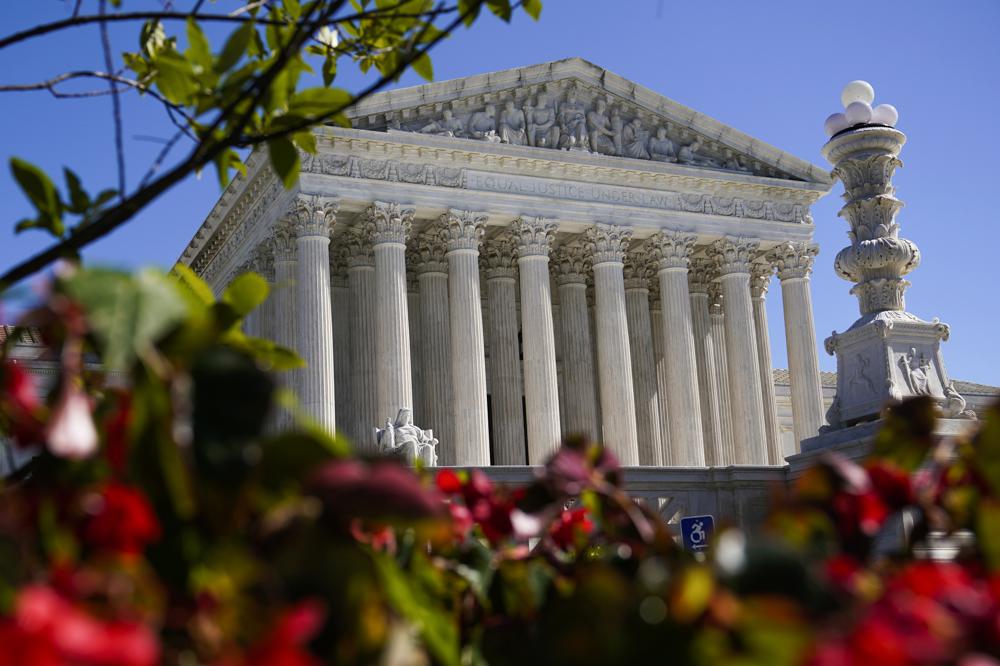
The Supreme Court on Thursday rejected former President Donald Trump’s plea to step into the legal fight over the FBI search of his Florida estate. The justices did not otherwise comment on turning away Trump’s emergency appeal. Trump had pressed the court on an issue relating to classified documents seized in the search authorized by a federal judge of Mar-a-Lago. The Trump team was asking the justices to overturn a lower court ruling and permit an independent arbiter, or special master, to review the roughly 100 documents with classified markings that were taken in the August 8 search of Mar-a-Lago. The move Thursday appears to greatly reduce the potential impact of the special master process to the ongoing Justice Department criminal investigation into the classified documents. A federal appeals court had already restored the department’s access to the classified documents, which had been the investigators’ primary goal. And the Supreme Court’s decision to stay out of the fray ensures that the special master will not have access to those same records as the FBI and Justice Department evaluate if criminal charges are merited. A three-judge panel from the Atlanta-based U.S. Court of Appeals for the 11th Circuit last month limited the special master’s review to the much larger tranche of non-classified documents. The judges, including two Trump appointees, sided with the Justice Department, which had argued there was no legal basis for the special master to conduct his own review of the classified records. But Trump’s lawyers said in their application to the Supreme Court that it was essential for the special master to have access to the classified records to “determine whether documents bearing classification markings are in fact classified, and regardless of classification, whether those records are personal records or Presidential records.” The Justice Department said in a Supreme Court filing that Trump’s request had no merit. The FBI says it seized roughly 11,000 documents, including about 100 with classification markings, during its search. The Trump team asked a judge in Florida, Aileen Cannon, to appoint a special master to do an independent review of the records. Cannon subsequently assigned a veteran Brooklyn judge, Raymond Dearie, to review the records and segregate those that may be protected by claims of attorney-client privilege and executive privilege. The Justice Department objected to Dearie’s ability to review the classified records, prompting the 11th Circuit to side with the department. The department also is appealing Cannon’s entire ruling to the 11th Circuit. Republished with the permission of The Associated Press.
Court lifts hold on Mar-a-Lago records
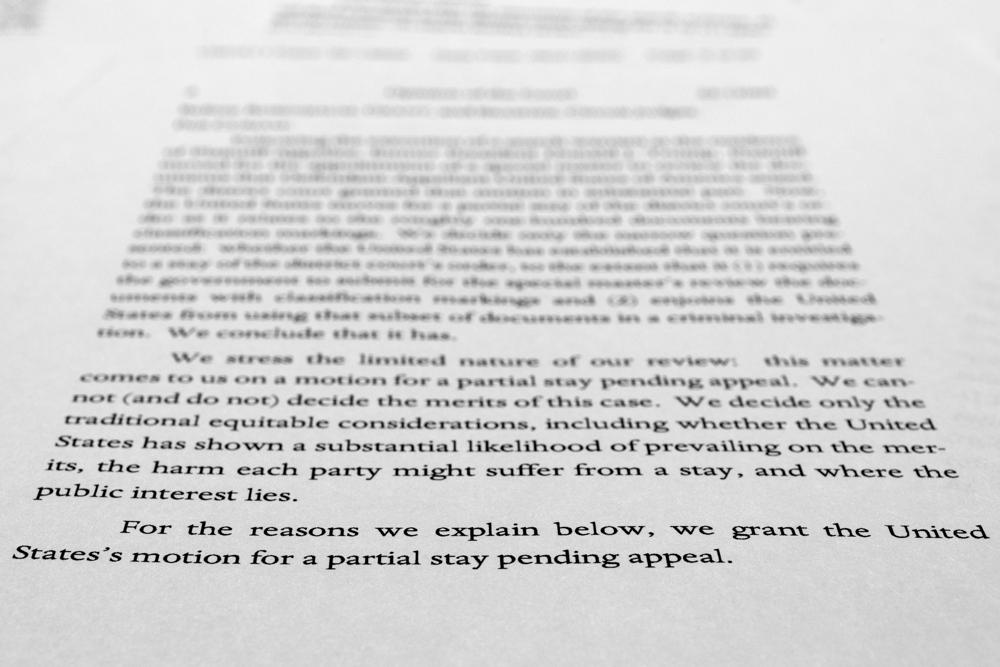
In a stark repudiation of Donald Trump’s legal arguments, a federal appeals court on Wednesday permitted the Justice Department to resume its use of classified records seized from the former president’s Florida estate as part of its ongoing criminal investigation. The ruling from a three-judge panel of the U.S. Court of Appeals for the 11th Circuit amounts to an overwhelming victory for the Justice Department, clearing the way for investigators to continue scrutinizing the documents as they consider whether to bring criminal charges over the storage of top-secret records at Mar-a-Lago after Trump left the White House. In lifting a hold on a core aspect of the department’s probe, the court removed an obstacle that could have delayed the investigation by weeks. The appeals court also pointedly noted that Trump had presented no evidence that he had declassified the sensitive records, as he maintained as recently as Wednesday, and rejected the possibility that Trump could have an “individual interest in or need for” the roughly 100 documents with classification markings that were seized by the FBI in its August 8 search of the Palm Beach property. “If you’re the president of the United States, you can declassify just by saying, ‘It’s declassified.’ Even by thinking about it…You’re the president; you make that decision,” Trump claimed in a Fox News Channel interview recorded Wednesday before the appeals court ruling. The government had argued that its investigation had been impeded, and national security concerns swept aside, by an order from U.S. District Judge Aileen Cannon that temporarily barred investigators from continuing to use the documents in its inquiry. Cannon, a Trump appointee, had said the hold would remain in place pending a separate review by an independent arbiter she had appointed at the Trump team’s request to review the records. The appeals panel agreed with the Justice Department’s concerns. “It is self-evident that the public has a strong interest in ensuring that the storage of the classified records did not result in ‘exceptionally grave damage to the national security,’” they wrote. “Ascertaining that,” they added, “necessarily involves reviewing the documents, determining who had access to them and when, and deciding which (if any) sources or methods are compromised.” An injunction that delayed or prevented the criminal investigation “from using classified materials risks imposing real and significant harm on the United States and the public,” they wrote. Two of the three judges who issued Wednesday’s ruling — Britt Grant and Andrew Brasher — were nominated to the 11th Circuit by Trump. Judge Robin Rosenbaum was nominated by former President Barack Obama. Lawyers for Trump did not return an email seeking comment on whether they would appeal the ruling. The Justice Department did not have an immediate comment. The FBI last month seized roughly 11,000 documents, including about 100 with classification markings, during a court-authorized search of the Palm Beach club. It has launched a criminal investigation into whether the records were mishandled or compromised, though is not clear whether Trump or anyone else will be charged. Cannon ruled on September 5 that she would name an independent arbiter, or special master, to do an independent review of those records and segregate any that may be covered by claims of attorney-client privilege or executive privilege, and to determine whether any of the materials should be returned to Trump. Raymond Dearie, the former chief judge of the federal court based in Brooklyn, has been named to the role and held his first meeting on Tuesday with lawyers for both sides. The appeals court ruling appears to substantially narrow the special master’s job description, enabling the Justice Department to avoid providing him with classified documents to review. Instead, Dearie would review the much larger tranche of non-classified government documents. The Justice Department had argued that a special master review of the classified documents was not necessary. It said Trump had no plausible basis to invoke executive privilege over the documents, nor could the records be covered by attorney-client privilege because they do not involve communications between Trump and his lawyers. It had also contested Cannon’s order requiring it to provide Dearie and Trump’s lawyers with access to the classified material. The court sided with the Justice Department on Wednesday, saying “courts should order review of such materials in only the most extraordinary circumstances. The record does not allow for the conclusion that this is such a circumstance.” Though Trump’s lawyers have said a president has absolute authority to declassify information, they have notably stopped short of asserting that the records were declassified. The Trump team this week resisted providing Dearie with any information to support the idea that the records might have been declassified, saying the issue could be part of their defense in the event of an indictment. The Justice Department has said there is no indication that Trump took any steps to declassify the documents and even included a photo in one court filing of some of the seized documents with colored cover sheets indicating their classified status. The appeals court, too, made the same point. “Plaintiff suggests that he may have declassified these documents when he was President. But the record contains no evidence that any of these records were declassified,” the judges wrote. “In any event, at least for these purposes, the declassification argument is a red herring because declassifying an official document would not change its content or render it personal.” Republished with the permission of The Associated Press.
Arbiter in Donald Trump docs probe signals intent to move quickly
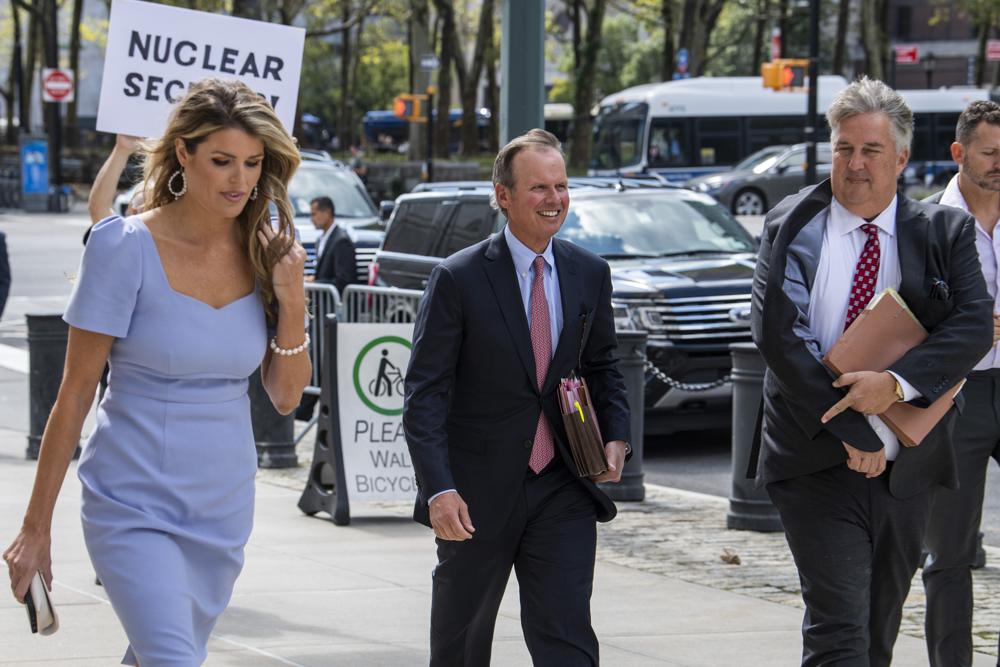
The independent arbiter tasked with inspecting documents seized in an FBI search of former President Donald Trump’s Florida home said Tuesday he intends to push briskly through the review process and appeared skeptical of the Trump team’s reluctance to say whether it believed the records had been declassified. “We’re going to proceed with what I call responsible dispatch,” Raymond Dearie, a veteran Brooklyn judge, told lawyers for Trump and the Justice Department in their first meeting since his appointment last week as a so-called special master. The purpose of the meeting was to sort out next steps in a review process expected to slow by weeks, if not months, the criminal investigation into the retention of top-secret information at Mar-a-Lago after Trump left the White House. As special master, Dearie will be responsible for sifting through the thousands of documents recovered during the Aug. 8 FBI search and segregating those protected by claims of executive privilege or attorney-client privilege. Though Trump’s lawyers had requested the appointment of a special master to ensure an independent review of the documents, they have resisted Dearie’s request for more information about whether the seized records had been previously declassified — as Trump has maintained. His lawyers have consistently stopped short of that claim, even as they have asserted that a president has absolute authority to declassify information. They said in a separate filing Tuesday that the Justice Department had not proven that the records remained classified. “In the case of someone who has been president of the United States, they have unfettered access along with unfettered declassification authority,” one of Trump’s lawyers, James Trusty, said in court Tuesday. But Dearie said that if Trump’s lawyers will not actually assert that the records have been declassified, and the Justice Department instead presents an acceptable case that they remain classified, then he would be inclined to regard them as classified. “As far as I’m concerned,” he said, “that’s the end of it.” In a letter to Dearie on Monday night, the lawyers said the declassification issue might be part of Trump’s defense in the event of an indictment. Trusty said in court Tuesday that the Trump team should not be forced at this point to disclose a possible defense based on the idea the records had been declassified. He denied that the lawyers were trying to engage in “gamesman-like” behavior but instead believed it was a process that required “baby steps.” He said the right time for the discussion is whenever Trump presses forward with a claim to get any seized property back. Dearie said he understood the position but observed: “I guess my view of it is, you can’t have your cake and eat it” too. The resistance to the judge’s request was notable because it was Trump’s lawyers, not the Justice Department, who had requested the appointment of a special master and because the recalcitrance included an acknowledgment that the probe could be building toward an indictment. Despite the focus on whether the seized documents are classified or not, the three statutes the Justice Department listed on a warrant as part of its investigation do not require that the mishandled information be classified in order to initiate a prosecution. The Trump team has also questioned the feasibility of some of the deadlines for the special master’s review. That work includes inspecting the roughly 11,000 documents, including about 100 marked as classified, that were taken during the FBI’s search. U.S. District Judge Aileen Cannon, a Trump appointee who granted the Trump team’s request for a special master, had set a November 30 deadline for Dearie’s review and instructed him to prioritize his inspection of classified records. The Justice Department has asked a federal appeals court to halt Cannon’s order requiring it to provide him with classified documents for his review. That appeal is pending. Dearie, a Ronald Reagan appointee whose name is on the atrium of his Brooklyn courthouse, made clear during Tuesday’s meeting that he intended to meet the deadlines, saying there was “little time” to complete the assigned tasks. Julie Edelstein, a Justice Department lawyer, said she was hopeful that the department could get the documents digitized and provided to Trump’s lawyers by early next week. She noted that the department had given the legal team a list of five vendors approved by the government for the purposes of scanning, hosting, and otherwise processing the seized records. After some haggling, Dearie instructed Trusty’s lawyers to choose a vendor by Friday. Earlier Tuesday, the Trump legal team urged the U.S. Court of Appeals for the 11th Circuit to leave in place Cannon’s order temporarily barring the Justice Department’s use of the classified records for its criminal investigation while Dearie completes his review. The department has said that the order has impeded its investigation into the presence of top-secret information at Mar-a-Lago. Trump’s lawyers called those concerns overblown, saying investigators could still do other work on the probe even without scrutinizing the seized records. “Ultimately, any brief delay to the criminal investigation will not irreparably harm the Government,” Trump’s lawyers wrote. “The injunction does not preclude the Government from conducting a criminal investigation, it merely delays the investigation for a short period while a neutral third party reviews the documents in question.” Republished with the permission of The Associated Press.
Judge grants Donald Trump bid for special master in document search
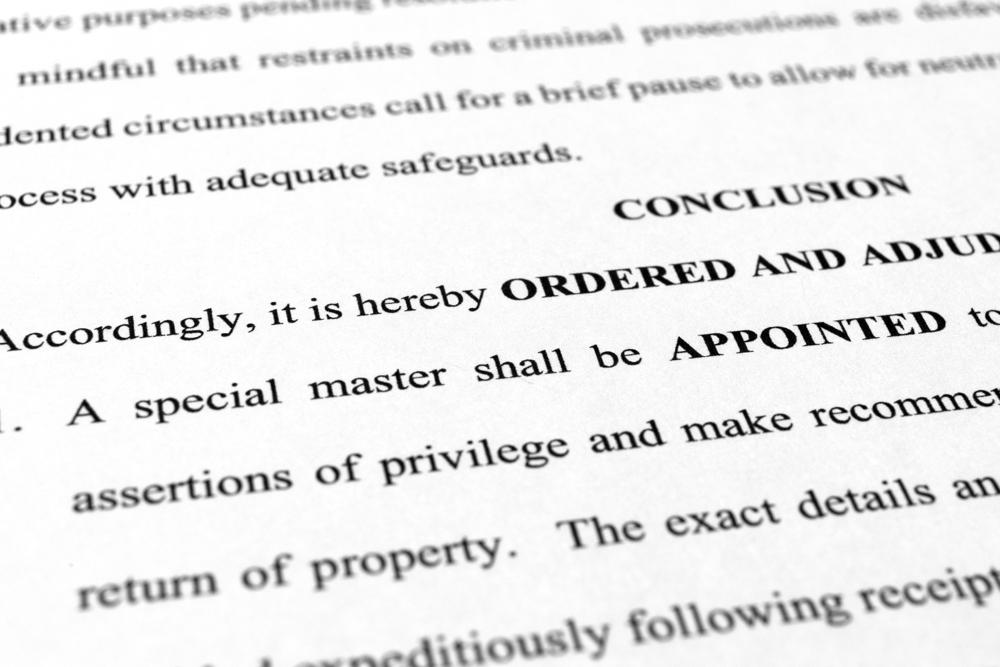
In a legal victory for former President Donald Trump, a federal judge on Monday granted his request for a special master to review documents seized by the FBI from his Florida home and temporarily halted the Justice Department’s use of the records for investigative purposes. The decision by U.S. District Judge Aileen Cannon authorizes an outside legal expert to review the records taken during the Aug. 8 search and to weed out from the rest of the investigation any that might be protected by claims of attorney-client privilege or executive privilege. Some of those records may ultimately be returned to Trump, but the judge put off a ruling on that question. The order came despite the strenuous objections of the Justice Department, which said a special master was not necessary in part because officials had already completed their review of potentially privileged documents. The department said Monday that it was reviewing the decision but did not indicate if and when it might appeal. The order almost certainly slows the pace of the department’s investigation into the presence of top-secret information at Mar-a-Lago, particularly given the judge’s directive that the Justice Department may not for the moment use any of the seized materials as part of its investigation into the storage of government secrets at the Florida property. The injunction is in place until the yet-to-be-named special master completes his or her work or until “further court order.” “The Court is mindful that restraints on criminal prosecutions are disfavored but finds that these unprecedented circumstances call for a brief pause to allow for neutral, third-party review to ensure a just process with adequate safeguards,” Cannon, a Trump appointee, wrote in her 24-page order. Even so, it is not clear that the decision will present a long-term impediment to the investigation’s progress or significantly affect investigative decisions or the ultimate outcome of the probe. And a separate assessment by the U.S. intelligence community of the risk posed by the apparent mishandling of classified records will continue under the judge’s order. “While this is a victory for the former President, it is by no means an overwhelming win for him,” David Weinstein, a Florida criminal defense lawyer and former Justice Department prosecutor, said in an email. “While it is a setback for the government, it is also not a devastating loss for them.” He noted, for instance, that the judge did not immediately order the seized documents returned to Trump or suppress any of the evidence. Justice Department spokesman Anthony Coley said Monday that “the United States is examining the opinion and will consider appropriate next steps in the ongoing litigation.” A lawyer for Trump did not respond to a request for comment. The department and Trump’s lawyers are to submit by Friday a list of proposed special master candidates. FBI agents in August seized roughly 11,000 documents and 1,800 other items from Mar-a-Lago as part of a criminal investigation into the retention of national defense information there, as well as into efforts to obstruct the probe. About 100 of the documents contained classification markings. Trump’s lawyers had argued that a special master, usually an outside lawyer or former judge, was necessary to ensure an independent review of records taken during the search so that any personal information or documents could be filtered out and returned to Trump. In this case, the seized records “include medical documents, correspondence related to taxes, and accounting information,” the judge’s order said. Cannon said it was too soon to know whether Trump will be entitled to the return of any of the records, but “for now, the circumstances surrounding the seizure in this case and the associated need for adequate procedural safeguards are sufficiently compelling to at least get Plaintiff past the courthouse doors.” She also said she found persuasive his lawyers’ arguments that he faced potentially “irreparable injury” by being denied access to records that might be of significant personal interest to him. She said the investigative process had, so far, been “closed off” to him. “As a function of Plaintiff’s former position as President of the United States, the stigma associated with the subject seizure is in a league of its own,” Cannon wrote. “A future indictment, based to any degree on property that ought to be returned, would result in reputational harm of a decidedly different order of magnitude.” The Justice Department had argued against the appointment, saying it was unnecessary because it had already reviewed potentially privileged documents and identified a limited subset that could be covered by attorney-client privilege. The department had been using a separate “privilege review team” for that work, but Cannon cited at least two instances in which members of the investigative team were “exposed” to potentially privileged material, something she said raised questions about the adequacy of the process. The department had also said Trump was not entitled to the return of any of the presidential records that were taken since he is no longer president, and the documents, therefore, do not belong to him. And personal items that were recovered were commingled with classified information, giving them potential evidentiary value, the department said. Though prosecutors had argued that Trump, as a former president, had no legal basis to assert executive privilege over the documents, the judge said he was entitled to raise it as a concern and permitted the special master to look for records that might be covered by that privilege. “The major sticking point, I think, is that the executive privilege documents were included” in the judge’s decision, said Florida criminal defense lawyer Richard Serafini, a former Justice Department prosecutor. Cannon, who was nominated by Trump in 2020, had signaled last month that she was inclined to appoint a special master and did so again during arguments last week, asking at one point, “Ultimately, what is the harm in the appointment of a special master to sort through these issues without creating undue delay?” Republished with the permission of The Associated Press.
Donald Trump documents probe: Judge appears open to special master
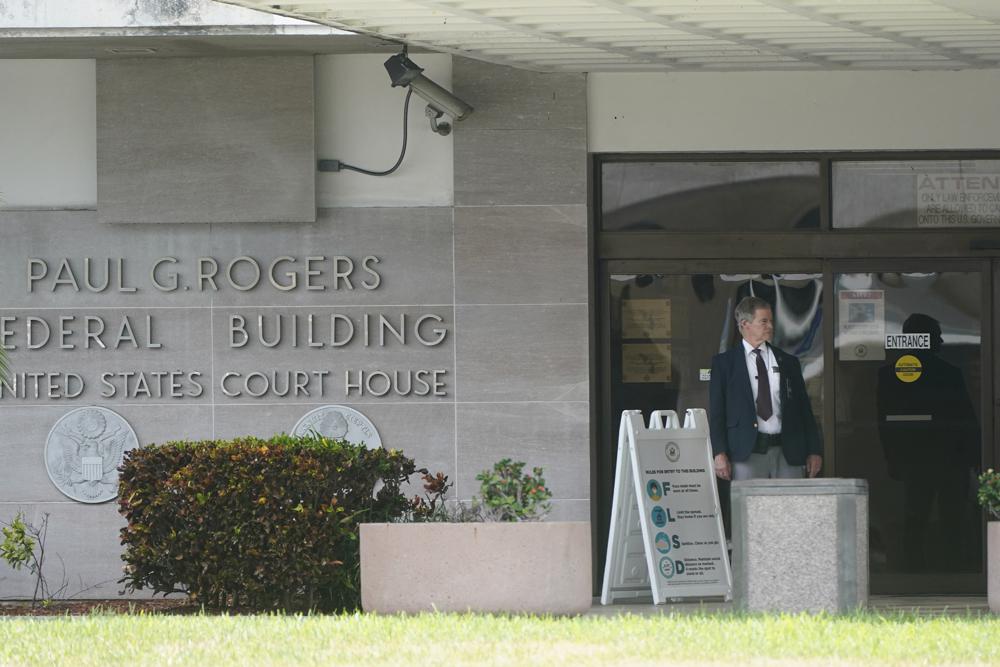
A federal judge Thursday appeared to give a boost to former President Donald Trump’s hopes for appointing an outside legal expert to review government records seized by the FBI, questioning the Justice Department’s arguments that Trump couldn’t make the request and that it would needlessly delay its investigation. “Ultimately, what is the harm” in such an appointment, U.S. District Judge Aileen Cannon asked department lawyers. But she did not rule on the request, saying she would do so later. Lawyers for Trump say the appointment of a special master is necessary to ensure an independent inspection of the documents seized by the FBI during the Aug. 8 search of Mar-a-Lago. This kind of review, they say, would allow for “highly personal information” such as diaries or journals to be separated from the investigation and returned to Trump, along with any other documents that may be protected by claims of attorney-client privilege or executive privilege. Chris Kise, a Trump lawyer and former Florida solicitor general, told Cannon that appointing a neutral party would restore public faith in the investigation. “This is an unprecedented situation. We need to lower the temperature,” Kise said. “We need to take a deep breath.” The Justice Department has said an appointment is unwarranted because investigators have completed their review of potentially privileged records and identified “a limited set of materials that potentially contain attorney-client privileged information.” The government also says Trump lacks legal grounds to demand the return of presidential documents because they do not belong to him since he no longer occupies the White House. “He is no longer president, said Jay Bratt, the head of the Justice Department’s counterintelligence section. He is unlawfully in possession of them.” The department has also expressed concerns that the appointment could delay the investigation, in part because a special master probably would need to obtain a security clearance to review the records and special authorization from intelligence agencies. But Cannon, who said she would issue a written ruling at some point, pressed the government on that point, asking, “Ultimately, what is the harm?” Cannon had said on Saturday, before the latest arguments in the matter, that her “preliminary intent” was to appoint a special master. It was not clear whether she might make a final determination Thursday or how her view might be affected by the fact that the Justice Department says it has already reviewed potentially privileged documents. It was also not clear who might serve as that outside expert. In some past high-profile cases, the role has been filled by a former federal judge. Cannon was nominated by Trump in 2020 and confirmed by the Senate 56-21 later that year. She is a former assistant U.S. attorney in Florida, handling mainly criminal appeals. Republished with the permission of The Associated Press.


